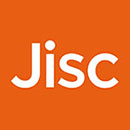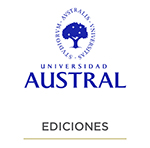Is there a correct answer for each legal case? Dworkin versus Finnis
Abstract
The correct legal response for each case proposed by Ronald Dworkin supposes an extraordinary confidence in legal practical reason, and among those who argued with it is the most widespread representative of classical natural law: John Finnis, who, although he affirms the existence of that evaluative reason, is limited to recognizing the dual function of: i) discarding inadmissible responses for suppressing “basic human goods”; and ii) offer equally reasonable and immeasurable alternatives that it is up to the judge to choose between them. These positions and their respective arguments are fully current around the possibilities offered by practical legal reason.
Downloads
References
Amselek, P. y MacCormick, N. (Eds.). (1991). Controversies about Law’s Ontology. Edimburgo: Edinburgh University Press.
Coleman, J. L. (1995). Truth and Objetivity in Law. Legal Theory, 1(1), 33-68.
Dworkin, R. (1984). Los derechos en serio. Barcelona: Ariel.
Dworkin, R. (1985). Is There Really No Right Answer in Hard Cases? En A Matter of Principle. Cambridge, Massachusetts: Harvard University Press.
Dworkin, R. (1986). Law’s Empire. Cambridge, Massachusetts: Harvard University Press.
Finnis, J. (1988). Moral Absolutes. Washington, D. C.: Catholic University of America Press.
Finnis, J. (1990). Natural Law and Legal Reasoning. Cleveland State Law Review, 38(1).
Finnis, J. (1998). Aquinas. Oxford: Oxford University Press.
Finnis, J. (2000). Ley natural y derechos naturales. Buenos Aires: Abeledo Perrot.
Hart, H. L. (1994). The Concept of Law. Oxford: Clarendon Press.
Moore, M. (2000). Educating Oneself in Public. Oxford: Oxford University Press.
Vigo, R. L. (2015). Interpretación (argumentación) jurídica en el Estado de Derecho Constitucional. Santa Fe: Rubinzal-Culzoni.
Vigo, R. L. (2019). Perspectiva iusfilosóficas contemporáneas (3a ed.). Buenos Aires: Abeledo Perrot.
Copyright (c) 2021 Rodolfo L. Vigo

This work is licensed under a Creative Commons Attribution-NonCommercial-NoDerivatives 4.0 International License.
This license allows the copy, distribution, exhibition and representation of the work provided authorship is acknowledged and the work is properly quoted. Commercial use of the original work or the generation of derived works are not allowed.
The authors hereby guarantee the right to the first publication of the work to the Revista Jurídica Austral.
















































